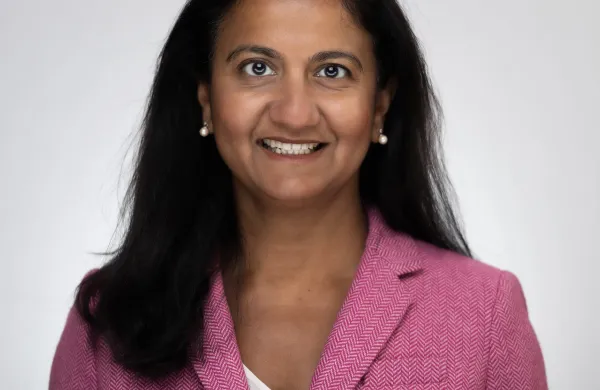Present-day investors, whether young or old, rich or poor, are among the most conservative and risk averse that advisers have seen in years — with those born in the late 1970s and after leading the way. But whereas accumulating cash reserves, for example, is certainly safe, it also guarantees losses from inflation, never mind a lack of capital gains. To encourage investors to jump in and test the waters, advisers are focusing the conversation on risk and long-term portfolio longevity.
In BlackRock’s Global Investor Pulse survey conducted during the summer and fall of 2013, 46 percent of 4,000 participants mentioned a hesitancy to take any risks with their money. Nearly half — 48 percent — kept most of their portfolios in cash or bonds, despite low returns and the long-term risk to purchasing power.
A UBS survey found that only 12 percent of Millennial investors, defined as those aged 21 to 36, indicated a willingness to invest new money or found money in the market. According to the survey, Millennials hold some 52 percent of their assets in cash and 28 percent in equities. When it comes to investment strategy, 17 percent of Millennials are trying to beat the market; others surveyed would be happy with a portfolio that tracks market performance or even underperforms, as long as investments were secure.
These are not recent trends, nor are they likely to disappear soon, says Emily Pachuta, head of client marketing and investor insights at UBS Wealth Management Americas in New York. High-net-worth investors’ cash levels across age demographics have hovered around 20 to 25 percent of total assets for the past three years, she says, and 74 percent plan to keep or increase cash allocations.
Risk aversion extends to the highest income brackets. According to Leo Grohowski, chief investment officer at BNY Mellon Wealth Management in New York, high-net-worth clients express more concern about loss of capital and are more likely to be heavy in cash. “I see a lot of risk aversion and overconcentration,” he says.
The most likely explanation for why this conservatism persists, according to UBS’s findings, is that Millennial investors have investment preferences similar to those who grew up during the Great Depression, as opposed to their baby boomer or Gen X predecessors. The cause: the 2008–’09 financial crisis, though circumstances are somewhat more complicated than a bad memory.
Pachuta says investors have redefined what risk means to them and are likely to think of it as permanent loss rather than volatility. “When you realize that is how investors are thinking about risk — as permanent losses — you can understand this is a very emotional topic,” says Pachuta.
At the same time, she adds, investors also seem to have redefined what is acceptable return. “There was a period of time when if you weren’t getting your 25 to 30 percent gains to talk about at the cocktail party, you didn’t go to the cocktail party,” Pachuta says. “That’s completely changed. Today 70 percent of investors want to stay on par with the market and don’t care if they miss out on gains.”
Investors also seem to have lost considerable faith in long-term investing as a route to wealth. “So many investors have become so short-term-oriented,” Grohowski says. Such a stance makes it difficult to discuss investments like private equity, which he sees as having particularly bright prospects but which require locking up capital for 10 years or so. “That’s been a very difficult talk to have with investors,” he says.
Pointing out stellar performance of equities in 2012 and 2013 hasn’t loosened clients’ views on risk and in some cases has made them more wary. The problem, according to Lisa Shalett, head of investment and portfolio strategies at Morgan Stanley Wealth Management in New York, is that clients feel they missed the ride and that it’s too late to get into equities. She says a typical client response is, “Aren’t stocks expensive?”
Investment advisory firms are tackling the issue of investor conservatism in numerous ways. From a fiduciary as well as a relationship standpoint, it’s problematic for advisers to attempt directly to get clients to modify their views about risk. As Pachuta says, “Changing the client is probably not a productive way to enter the conversation.”
Education is a more appropriate tactic, according to these firms. In late 2013 BNY Mellon Wealth Management ran an advertising campaign centered on the theme of “The Cost of Comfort,” which sought to inform investors about the mathematics of holding cash and bonds and the risk of future inflation. Grohowski says the goal of these efforts is to help clients better understand their own investments in context with their goals, rather than to get them all to do the same thing. “You can’t develop a one-size-fits-all strategy,” he says.
For clients approaching retirement, Shalett says her firm often steers conversations toward longevity. Clients are likely to think they won’t live as long or need as much money as is actuarially indicated, she notes. She also suggests that advisers talk about the need to fund contingencies such as long-term care. And she points out how clients should be prepared to preserve their purchasing power should inflation reassert itself.
For clients who have a specific goal in mind, such as college or the purchase of a home, Shalett suggests the value of managing volatility around a particular target or end date. “The clients need to take some risk to grow their capital but their risk needs to be managed relative to their time horizon,” she says.
Pachuta emphasizes that the goal of these conversations should not be to break down a client’s unwillingness to release cash for investment, but to listen and create a plan that accommodates client needs while strengthening the adviser relationship. “It is a win-win for everyone,” she says. “The client feels good. They’re in control in some respects because they have a plan in place. And they have an adviser who is an expert and can help manage their assets.”





